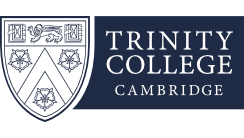Trinity College Cambridge Junior Research Fellowships

Trinity College intends to hold an election of Junior Research Fellows in 2026. The purpose of Junior Research Fellowships is to offer people of exceptional intellectual calibre, for whom the fellowship would be their first substantial paid academic or research appointment, an opportunity and freedom to pursue research in Cambridge on a topic of their choice for up to four years with no further duties. The Fellowships are available in all branches of University studies. Applications that would enhance the diversity of the College at this level are particularly welcome.
A Junior Research Fellow receives total payment from the College of up to £44,420 per year (basic stipend £35,420 reviewed regularly, plus a housing allowance of £9,000). Fellows are entitled, on certain conditions, to rent-free residential accommodation in College (but subject to tax and a service charge), in which case the housing allowance is not payable. A Fellow registered for a degree will receive a lower maintenance payment until this study is completed. In addition, Junior Research Fellows may take all meals at High Table free of charge, and there are various additional benefits, including access to funds for the support of research and attendance at conferences.
Further particulars may be obtained from the College website, http://www.trin.cam.ac.uk/jrf, or from the Competition Administrator, Junior Research Fellowship Competition, Trinity College, Cambridge, CB2 1TQ, UK (e-mail: jrf@trin.cam.ac.uk).
The deadline for applications is 11:59 pm (UK time) on Thursday 28 August 2025.

